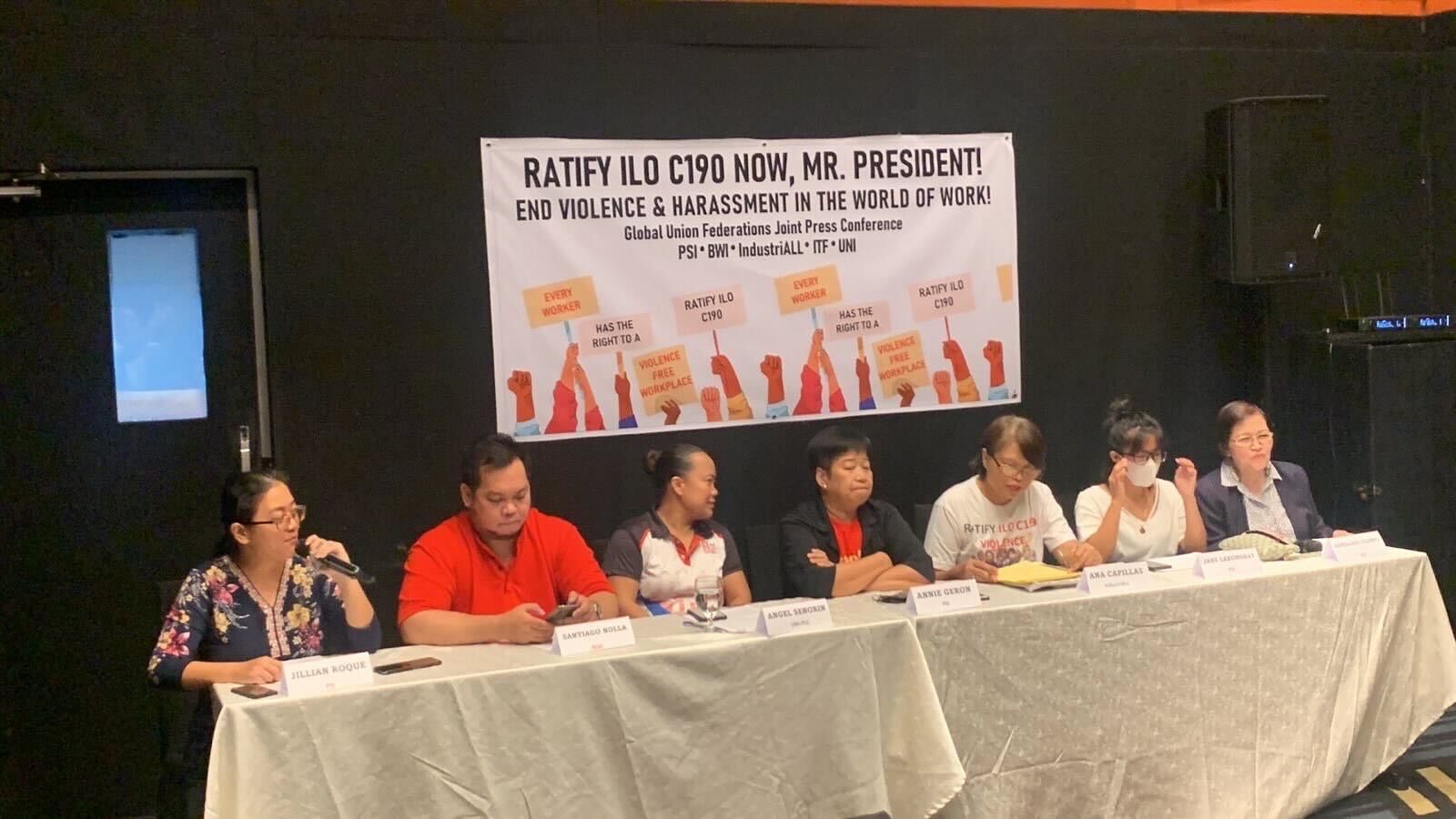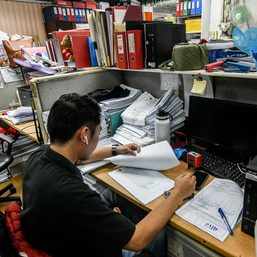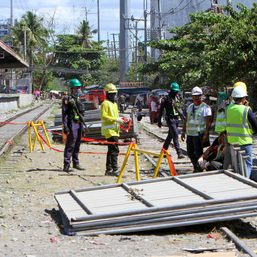SUMMARY
This is AI generated summarization, which may have errors. For context, always refer to the full article.

MANILA, Philippines – Representatives of different labor groups on Wednesday, September 27, urged President Ferdinand Marcos Jr. to swiftly ratify an International Labor Organization (ILO) convention that would address intersectional issues that cause workplace violence.
Intersectionality, or the interplay of factors like gender and occupation that make someone more or less vulnerable to abuse, came up during the labor groups’ joint press conference on Wednesday to give a “last push” in urging Marcos to ratify ILO Convention 190 (C190), or the Convention on the Elimination of Violence and Harassment in the World of Work.
Representatives from the service, construction, and health industries outlined how the convention would protect fellow workers in their respective sectors.
Annie Geron, president of the Public Services Labor Independent Confederation, highlighted how being a part of several marginalized groups multiplies a worker’s risk of harassment and violence.
“Batang manggawa ka, babae ka, may kapansasan ka pa, contractual ka pa. Doon nagkakaroon ng mga vulnerabilities at ‘yung intersection ng epekto ng violence. ‘Yan po ‘yung ina-address [ng ILO C190] (You’re a young worker, a woman, disabled, and you’re even contractual. That’s where vulnerabilities emerge and the effects of violence intersect. This is what ILO C190 addresses),” she said.
According to a case study of the Philippine Business Coalition for Women Empowerment, one in seven Filipino women experiences sexual harassment at least once a week. Despite its prevalence, it is underreported due to fears of reprisal, the PBCWE said.
In January, the House of Representatives adopted a resolution urging the government to ratify ILO Convention 190. Senator Joel Villanueva and Deputy Minority Leader Risa Hontiveros filed separate resolutions for the same purpose at the Senate in February and August, respectively.
Harassment in various industries
Speaking for the service industry, Angel Senorin of the UNI Global Union–Philippines Liaison Council brought up the sexual harassment some female service workers face.
Senorin described, for instance, how some women casino workers are made to wear revealing outfits, and receive lewd advances from customers.
Meanwhile, Ana Capillas of IndustriALL said some women working in large scale industries, especially textile manufacturing, are vulnerable to verbal abuse. Some department managers humiliate female employees in front of their co-workers by scolding them, which Capillas said is considered harassment, but the mistreatment allegedly does not stop at words.
“[May mga] General manager, hinihipuan ‘yung mga kababaihan…. Aakbayan ka. So, siyempre, [akala mo] kai-kaibigan lang, pero hindi nila alam na [may] mga unwanted [intensyon pala],” Capillas said.
(There are some general managers that molest women…. They put their arm around your shoulder, so you think they’re being friendly, but they really have unwanted intentions.)
Female healthcare workers also experience similar treatment. Jane Labongray of Public Services International (PSI) said some female nurses experience verbal attacks by doctors, patients, and even fellow nurses, with some getting sexually harassed.
She explained that workplace violence against women is often caused by the Philippines’ patriarchal society, where power relationships between men and women are unequal. “Whoever has a higher position tends to be the abuser,” she said.
This is not an issue exclusive to the Philippines, with UNESCO publishing a 2021 call to action to end violence against women where they reported that approximately 30% to 40% of Asian women suffered sexual harassment in the workplace.
Men, too
Men are also not exempted from experiencing mistreatment.
According to Santiago Nolla of the National Union of Building and Construction Workers, physical violence is common in such a male-dominated workforce.
“Laging may gulong nangyayari at dahil mga lalaki ‘yan…hindi umaatras sa laban. Kaya minsan nawawala sila sa control (There’s usually trouble and because they’re men…who don’t back down from fights. So, sometimes, they lose control),” Nolla said.
Under the ILO C190, regulations preventing physical fighting will be implemented. It also requires employers to hold appropriately accessible initiatives to promote and explain these policies, so that all workers are well-informed and safe.
“Kinakailangan nila ‘yung ganitong klase ng proteksyon (They need this kind of protection),” Nolla said.
Jillian Roque of PSI said that ILO C190 would help keep all workers safe.
“Whether you are in the formal sector or informal sector. Whether you are in the private sector or public sector. Even if you are a migrant worker, all of you will be protected by this instrument. Even job seekers, even interns are protected. All workers in the world of work are protected by it,” said Roque. – Francessca Abalos/Rappler.com
Francessca Abalos is a Rappler volunteer studying at Ateneo de Manila University. This article was done under the supervision of Rappler staff and her copy was vetted by editors.
Add a comment
How does this make you feel?




![[ANALYSIS] A new advocacy in race to financial literacy](https://www.rappler.com/tachyon/2024/04/advocacy-race-financial-literacy-April-19-2024.jpg?resize=257%2C257&crop_strategy=attention)
There are no comments yet. Add your comment to start the conversation.